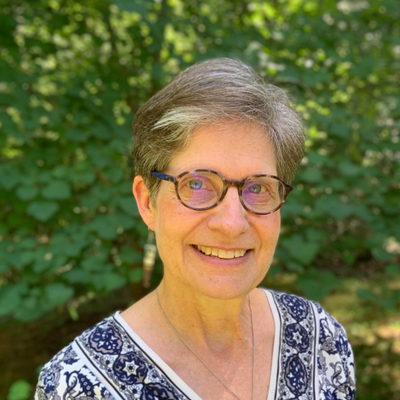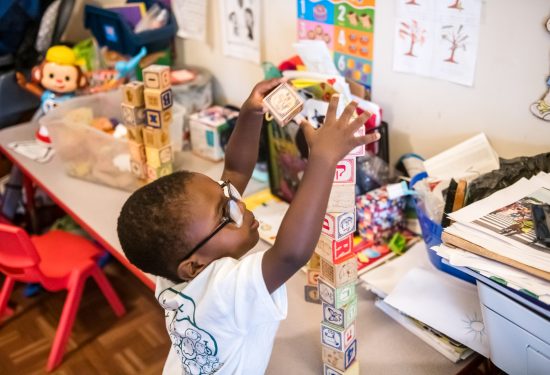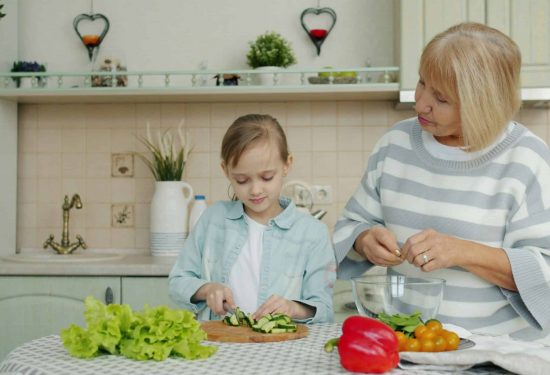“I can remember growing up, just loving going to my grandparents’ house and getting to spend time with them and talking with them about their life. Now I get that with my grandchildren. It’s something I look forward to every day,” says Tracy Owen, a Rosman, North Carolina grandmother who cares for her grandchildren, a 3-year-old and a 9-year-old, for more than 30 hours each week.
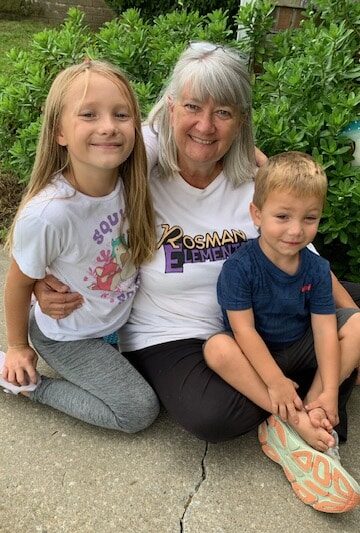
The children’s mom works evenings in the local hospital, and Owen’s son, a tree feller, works long hours and often travels for work. Owen herself is a full-time teaching assistant. After school, she cares for both grandkids until mom or dad gets off work, sometimes as late as 9 p.m.
Across the nation, more than 2 million grandparents live with and provide primary care for their grandchildren, according to the U.S. Census bureau report of 2021. Many more live in separate homes, but provide child care for their grandchildren from 20 to 50 hours each week. According to Zero to Three, more than 24% of children under age 5 receive regular care from a grandparent. We’re especially grateful for these Family, Friend, and Neighbor caregivers during this FFN appreciation week!
Natalie Whitesides keeps her five-year-old granddaughter Mecklyn full time since her daughter is unable to care for her. “It’s like raising my daughter all over again,” she says. “Right now, she is weathering a lot of transitions, but my dad instilled in us, be there for your family, so I want to be here as long as I can to show her the love and care that I was taught and given as a child.”
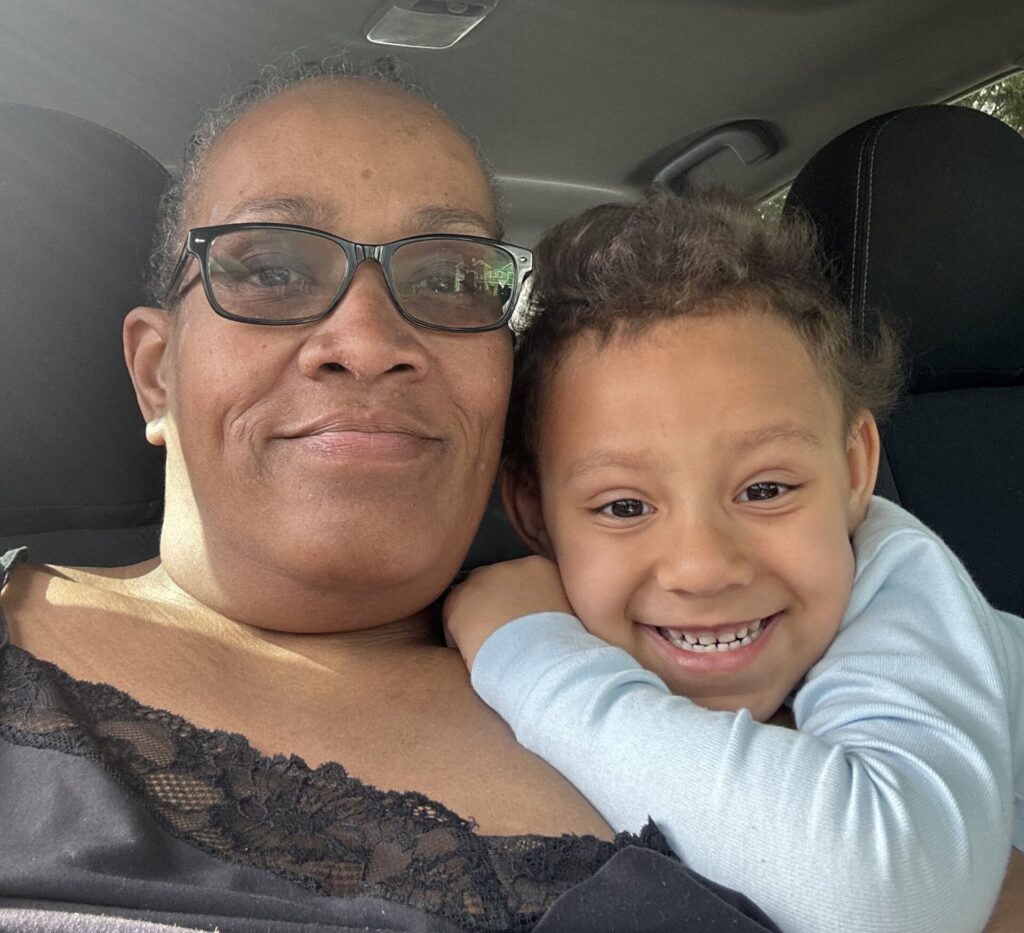
Owen and Whitesides are both members of the Family Friends and Neighbors Network in Transylvania County, North Carolina. Eighteen of the 68 network members are grandparents caring for grandchildren according to Chelsea Stewart, who facilitates the network for Smart Start of Transylvania County. “This is a way for grandmothers to create those connections, to have a play group and other grandparents with whom they can collaborate and connect,” she says.
Maria Buehler, retired early from her job as a registered nurse to take care of two grandchildren and is expecting another grandchild in March. She spends 8-12 hours daily with the kids, adjusting her schedule around her daughter and son-in-law’s teaching schedules, theater rehearsals, and choir duties. Although she says it was hard to give up being the breadwinner, she and her husband are able to make do with his social security and pension.
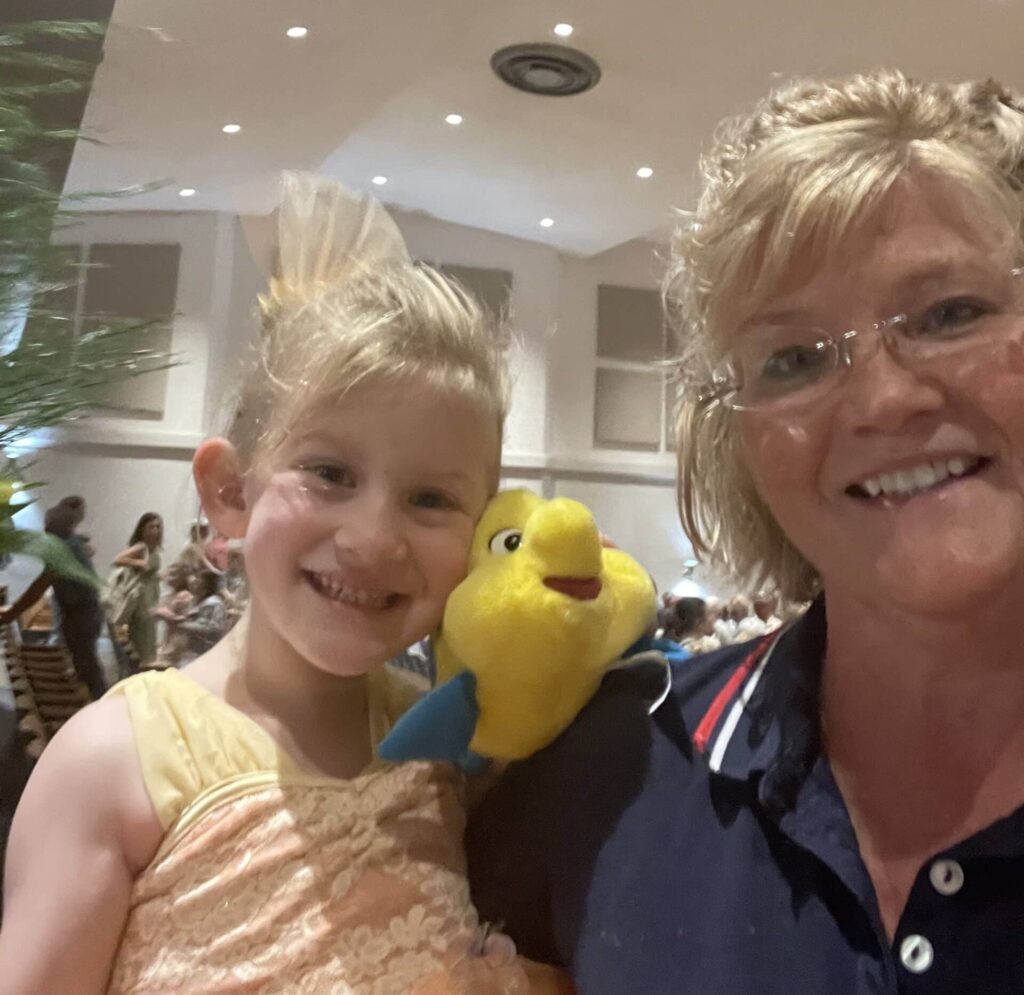
The Joy of Play
Both Buehler and Owen believe early childhood should be a time for kids to just be kids. Their grandchildren stay busy swimming, playing games, going to the library, exploring the park, shopping, and helping with household chores. “I have a big, huge garden,” says Buehler. They dig up earthworms and we go fishing. You have to have that balance of education and then free reign, of just letting them be kids and play. We get out and play even in the rain.”
Caring for their grandchildren at home also allows grandparents to be an important pillar in the children’s family life. “It’s just such a great joy to be able to know that I’m helping raise them, and I’m raising them with the values that our family has, and they’re turning out just to be, you know, great people,” says Buehler.
Keeping child care in the family also benefits parents who work non-traditional hours, like the parents of Owens’ grandkids. “It really frees them up to not worry or have to pick them up from daycare, because your child’s sick, you’ve got to come get them now. I got to be a stay-at-home mom when my kids grew up. But in this day and age, most families can’t afford to do that,” she says.
Network Support Helps Families
Like most grandparents, Whitesides, Owen, and Buehler are not paid for their child care work, but they do incur many expenses, and they’ve sacrificed other common retirement activities in order to be caregivers of young children. Those trade offs are worth it, they say, but every little bit of support helps. When Owen learned that The Family Place was offering a free dental clinic for the children of network members, she brought 3-year-old William in to get his teeth checked. “Little things like that really make a difference,” she says. The network helps the children as well as the caregivers.
Buehler lost her employer-sponsored health care when she retired to care for her grandchildren and went without health insurance. After two years she got a plan on the healthcare marketplace, which now costs her $300 a month. The $100 gift card she receives for participating in The Family Place activities helps offset the cost of toys, food, and gas.
Now that Whitesides’ granddaughter is in kindergarten, Whitesides has taken a part-time job working at the only child care center in town that still accepts infants. She also takes care of her own aging mother. “It’s a lot of caretaking,” she says. But the extra income allows her to stretch her dollar farther.
This year Whitesides, Owen, and Buehler have all applied for The Family Place’s pilot Thriving Provider Project, which will compensate eligible providers with $600 per month for eighteen months beginning this fall. The program, sponsored by Home Grown and funded by the Bainum Foundation, is designed to boost the economic stability of caregivers and the well being of families.
Especially with the new baby that’s coming in March, “That amount would make just such a big difference for diapers, food, transportation,” says Buehler. The extra money would also cover Buehler’s health insurance so that she is able to go to the doctor when she needs to, cover medications, and trust that she’ll be able to stay healthy enough to continue loving and caring for her grandkids.
